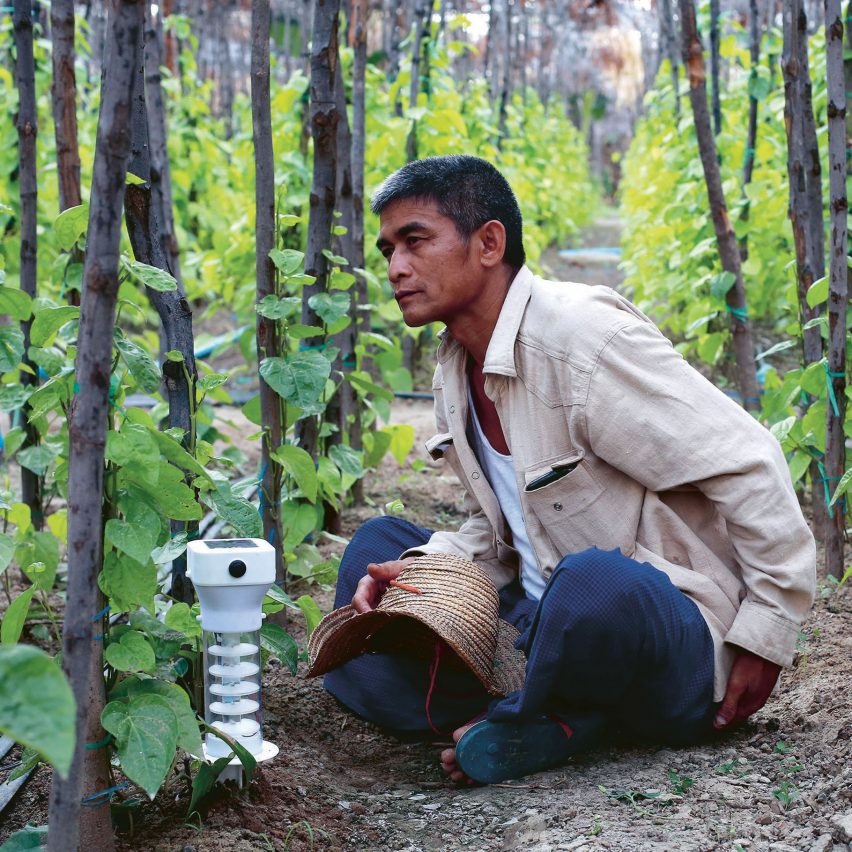
Creating communally for social good has to be the future of design, says Robert Phillips, author of Futurekind: Design by and for the People. He picks out five projects from the book that demonstrate the idea in action.
Part manifesto, part call-to-arms, Futurekind brings together more than 60 projects from around the globe designed to directly improves people's lives without harshly impacting the environment, a concept the author calls Futurekind.
Many provide solutions to everyday problems faced by some of the poorest people around the world.
"Futurekind design is considerate of its social, local, global, human and material effects, which can often be hidden from view," said Phillips, who is also a senior tutor at London's Royal College of Art.
"The lessons learned from these projects can be globally translated across cultures, contexts and different challenges."
Futurekind projects aim to "unify expertise and communities"
Collaboration and community engagement are key to the approach. This enables people to build on their own insights and experience as "enablers" of democratising design.
"The collaborative examples unify expertise and communities, rather than parachuting in established values," said Phillips.
"We don't intend to preach, as we do not know the answers. Instead, we hope to learn and build on others' responses and approaches to global challenges," he continued.
"Such issues require collaboration in order to navigate, unpick and address them fully, engaging economics, business models, capacity, government, social sciences, legal constraints, human rights, cultural knowledge and more."
Aided by new platforms, digital communities and engagement online, the potential for the products we make to be beneficial for society and the environment is greater than ever before.
"The people helping to shape Futurekind are policy-makers, entrepreneurs, designers, social scientists, engineers, communicators, collaborators, architects and, hopefully, you," said Phillips.
Read below for Phillips' pick of five projects that exemplify the Futurekind concept:
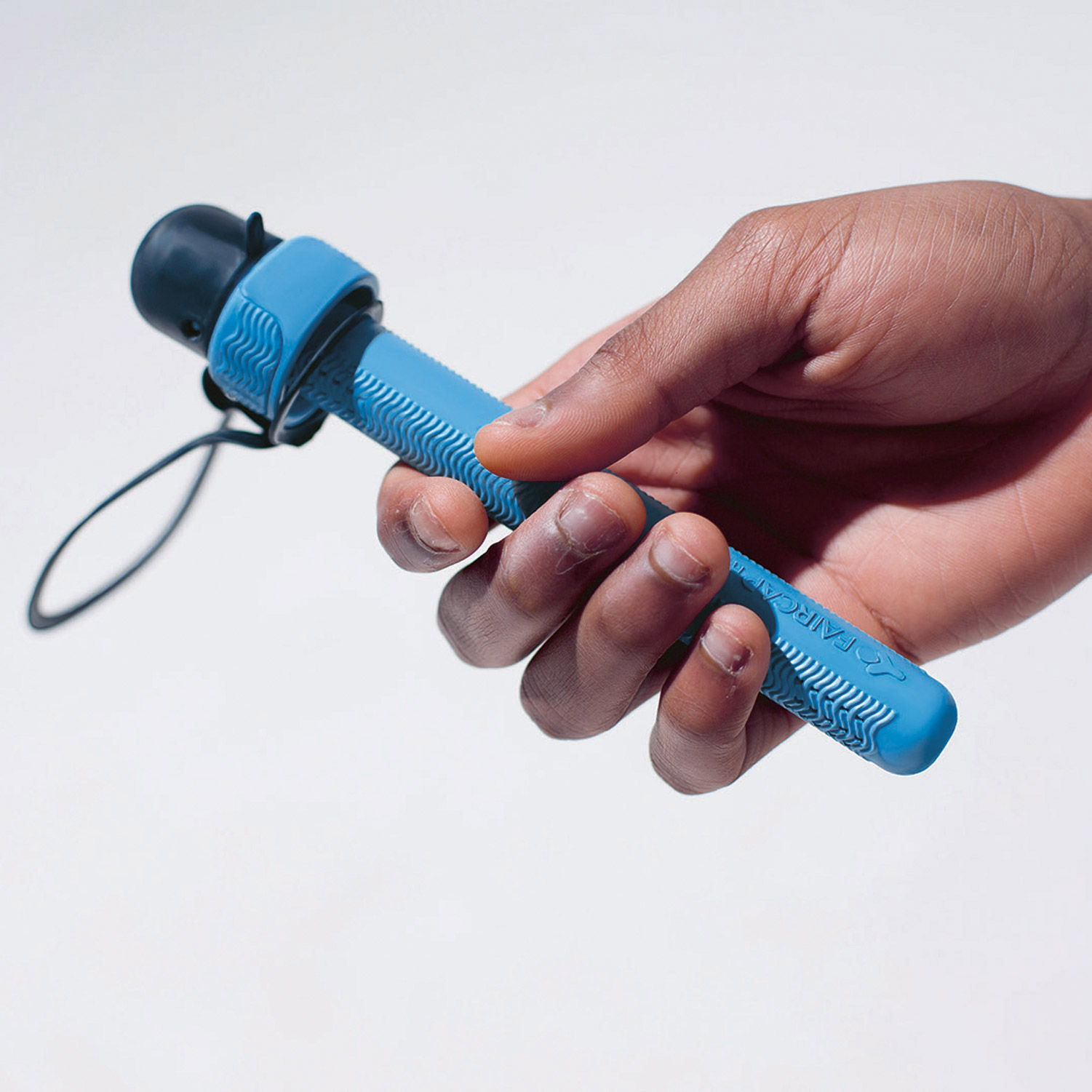
FairCap
"Globally, four billion people suffer from illnesses and 1.5 million die each year due to limited access to safe drinking water. Social entrepreneur Mauricio Cordova was struck by the Peru cholera epidemic that claimed 10,000 lives in the 1990s. As a result, he wants to eradicate lack of access to clean drinking water through FairCap.
"A bottle-mounted filter makes water safe to drink. Dubbed the 'one-euro water filter', it works with a tested 0.1-micron-pore membrane, removing pathogens like e.coli, cysts, protozoa and sediment. It was collaboratively designed and prototyped using 3D-printing and, in the future, could be made locally to promote distributed manufacturing."
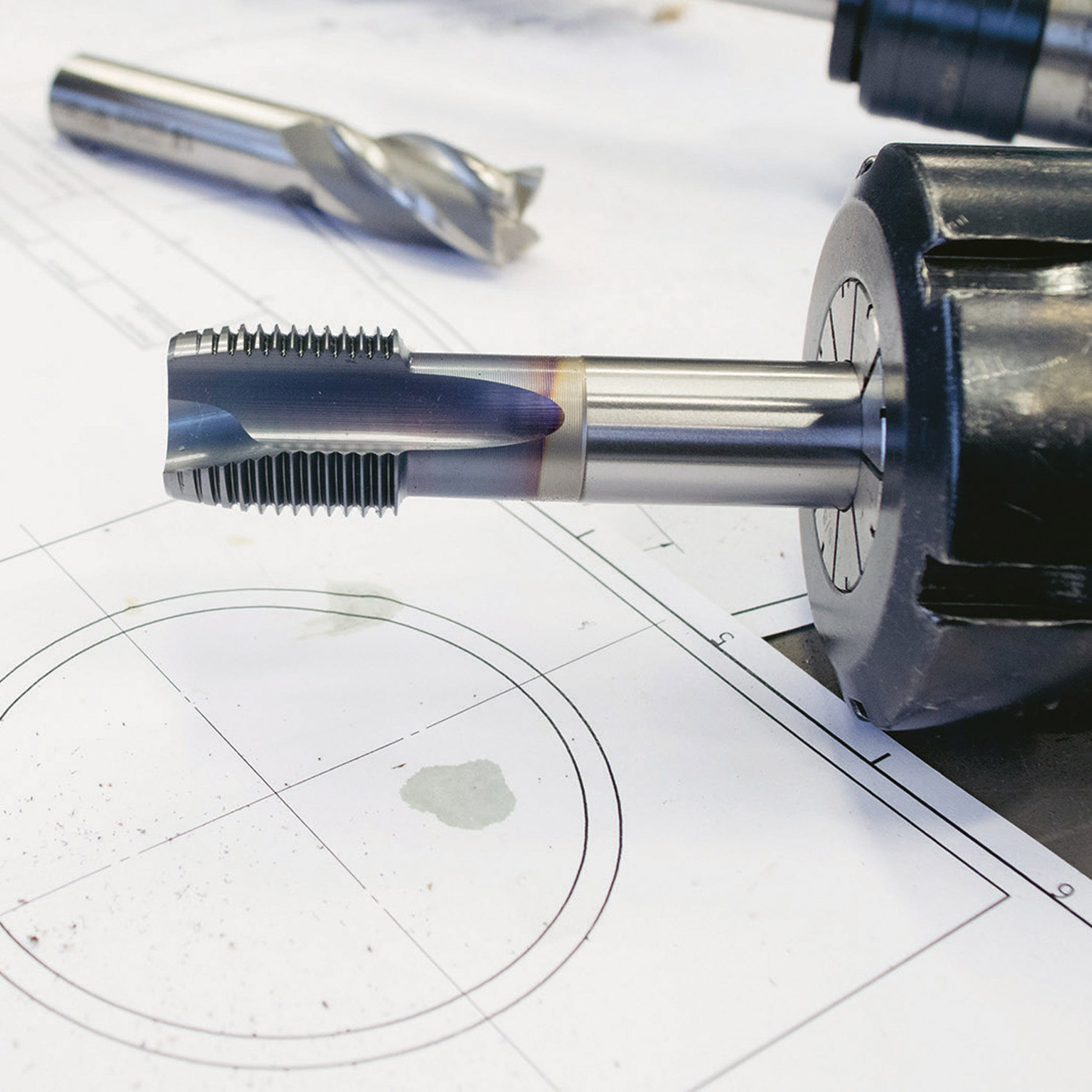
Showerloop
"Finland-based designer Jason Selvarajan felt guilty about taking long showers and decided to address the issue of water wastage. Instead of water flowing away, the Showerloop retains the water, sending it through numerous filters to clean it before pumping it back through the shower head. The water circulates in a loop until the person using the shower finishes.
"The steps involve a screen and microfibre to filter out hair and larger objects, and sand that filters out particles. Activated carbon removes smells and chemicals from the water and, finally, ultraviolet light kills bacteria.
"Because the water is already heated, it takes less energy to keep it hot as people use it. The start-up is selling DIY kits, and the design is open source, accessible to those with the skills to make it."
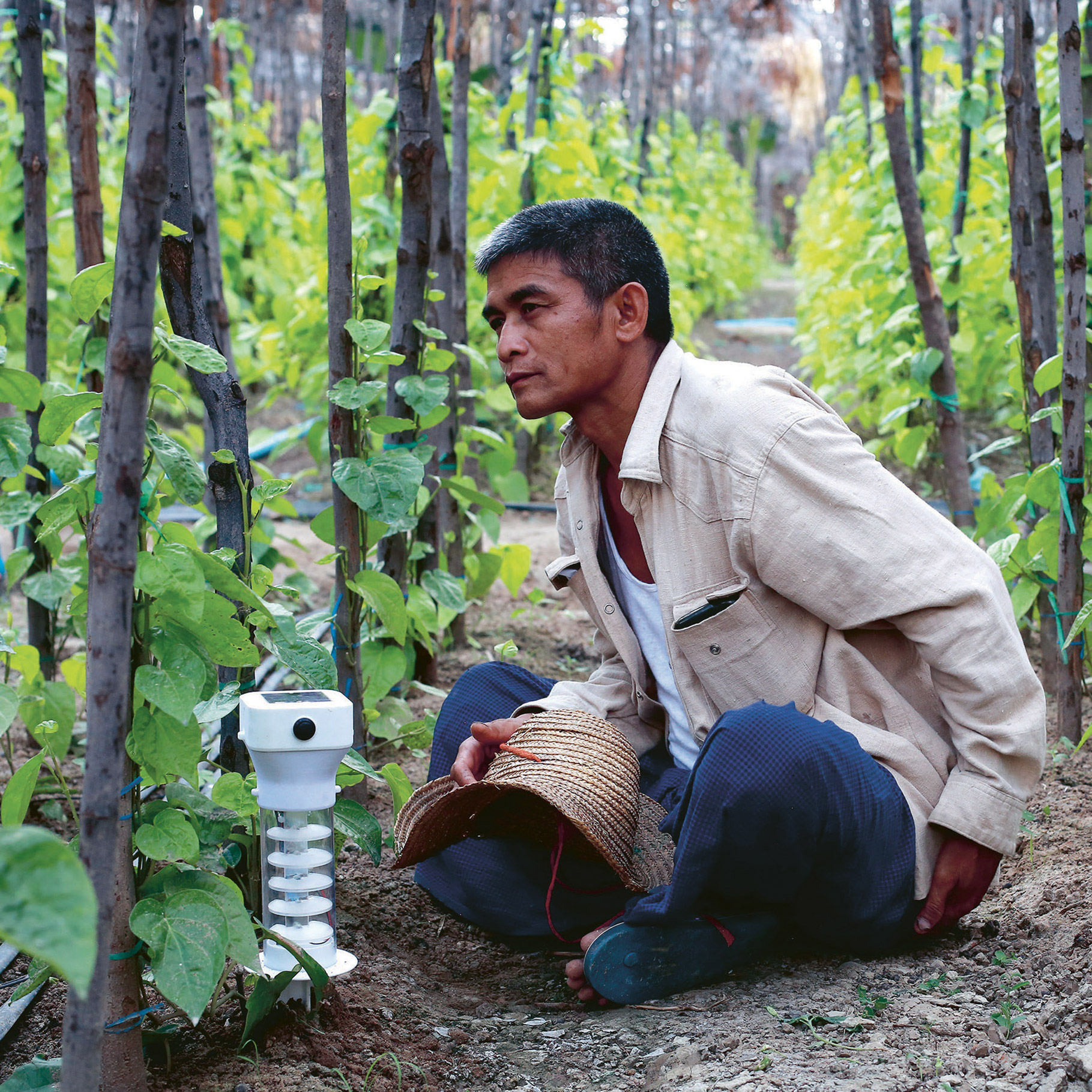
The Future Sense Project
"The Future Sense project was conceived to explore how emerging low-cost sensor technology, combined with increased internet access, could add value to social enterprises. Although the final prototypes focused on agriculture, the team experimented with ideas in energy, safety, health, and sanitation.
"Initial products include a moisture sensor that gives farmers an overview of water levels. The solar-powered moisture sensor indicates excess, inadequate or optimal ground moisture. The data gathered helps agents analyse farmland, assessing soil types, drainage rates and weather patterns. The data is reciprocal for arranging farm loans, reducing the risks faced by farmers and funders."
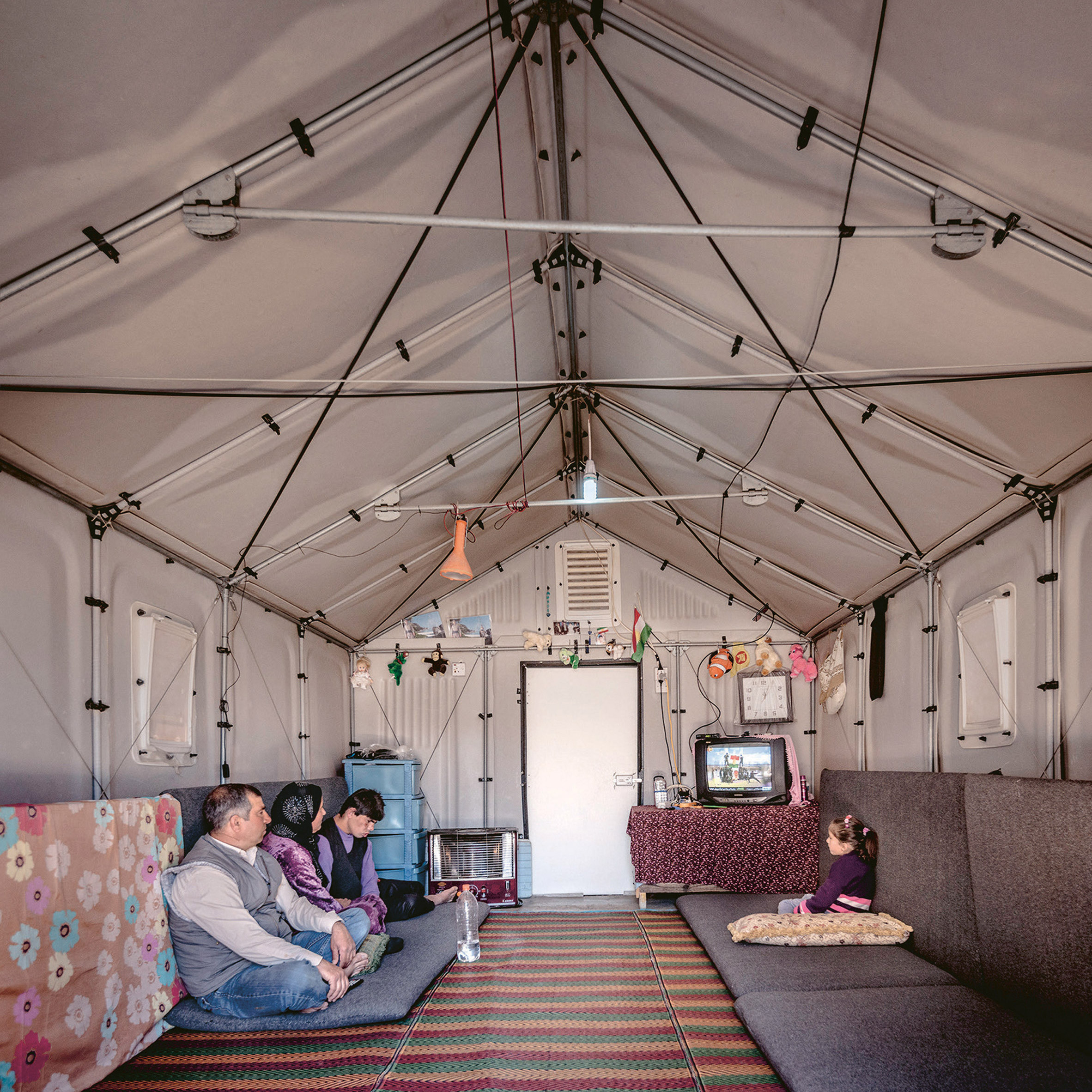
Better Shelter
"Better Shelter is a social enterprise that develops and provides innovative housing solutions. Their mission is to improve the lives of people displaced by conflicts and natural disasters.
"The project's aim is to complement traditional refugee tents, as used in emergencies, with shelters designed for the post-emergency phase, which are more spacious (with higher ceilings), better insulated (clad in polypropylene panels) and more durable (lasting three years in moderate climates) than their counterparts.
"They have a galvanised-steel frame, polyolefin roof and wall panels, a locking door and solar-powered lamp, offering safety and security in scenarios that are anything but. Any profits made are reinvested within the company. The shelters' flatpack design enables delivery and for them to be assembled by four people in roughly four to eight hours."
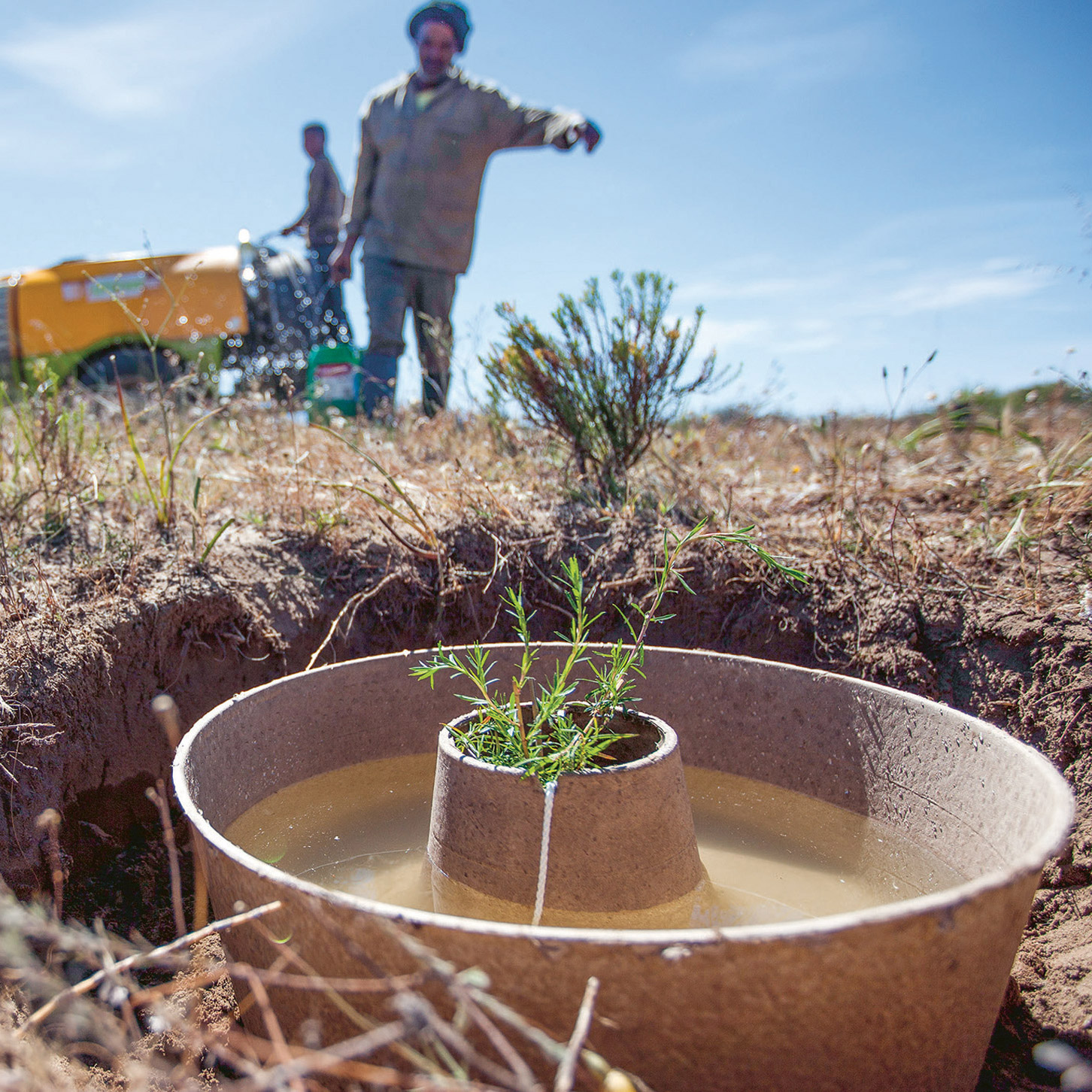
Land Life
"The Land Life organisation enables trees to grow in arid conditions, using their Cocoon. The Cocoon is cheaper than traditional planting techniques, and it dissolves into an organic substrate after planting.
"It removes the need for follow-up irrigation while supporting seedlings during their infancy. The units provide water and shelter, promoting a healthy and deep root structure that taps into sub-surface water supplies.
"To date, trees planted with the Cocoon (in more than 20 countries) have survival rates of 80 to 95 per cent. The process produces independent, strong trees without reliance on external irrigation, capable of surviving harsh conditions – and the paper pulp construction biodegrades in a year.
"The Cocoon can be used in projects of various sizes, for different species and soil compositions. Planting helps restore ecosystems damaged by overgrazing, tree cutting, droughts, floods or industrial and mining activities."
The post Futurekind projects are designed for people rather than profit appeared first on Dezeen.
https://ift.tt/2Ye43Qh
twitter.com/3novicesindia
No comments:
Post a Comment